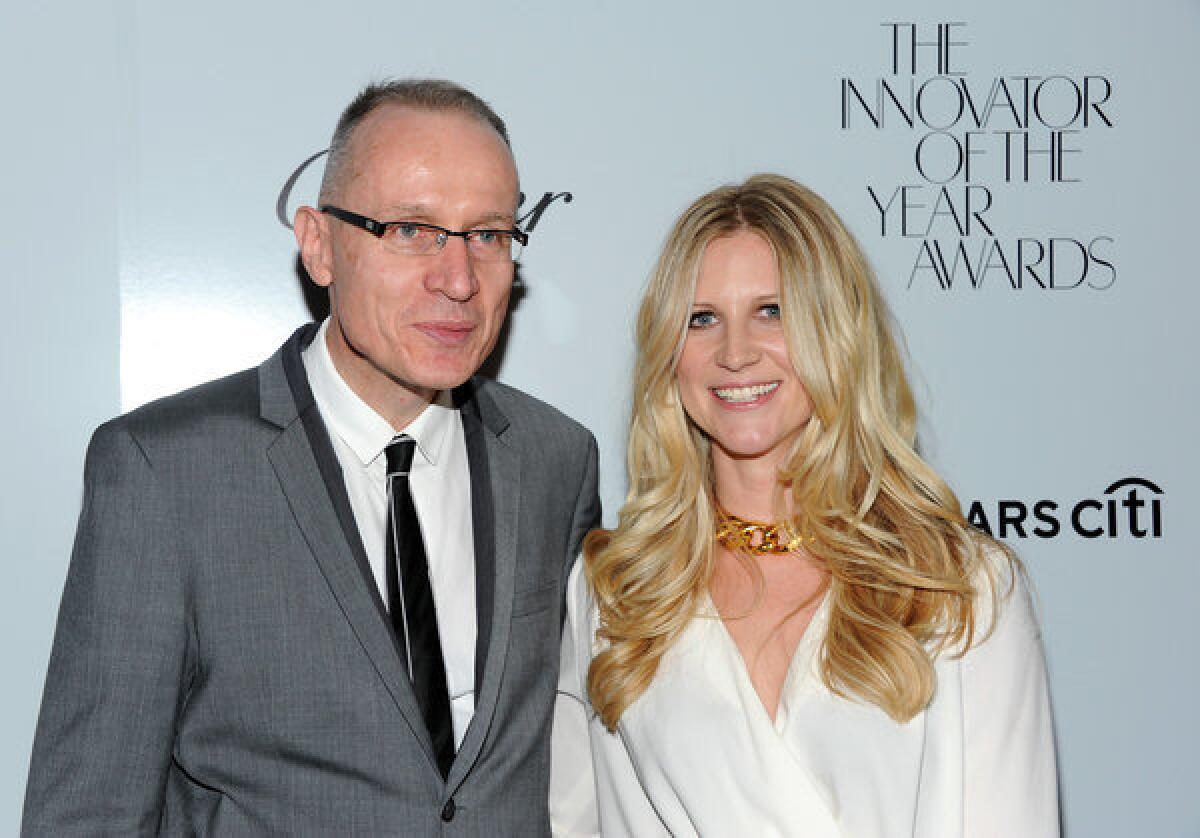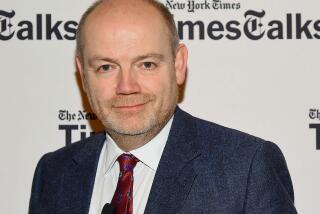News Corp.’s Thomson says print media remains ‘very powerful’

- Share via
News Corp. Chief Executive Robert Thomson has been cagey on how his publishing company plans to spend its mountain of cash -- or identify potential acquisition targets.
Regulatory rules, he said, prevented him from naming names.
“We’d all be arrested,” Thomson quipped on Tuesday to investors gathered at the Goldman Sachs 22nd Annual Communacopia Conference in New York.
PHOTOS: Highest-paid media executives of 2012
“I cannot be more specific but it would not be far removed from what we do now,” Thomson said. “We are not going into the fruit and vegetable business. We are not going to be fishmongers.”
Four months ago, the new News Corp. sprang to life with big ambitions and $2.6 billion in cash on its balance sheet. Rupert Murdoch divided his corporate empire into two publicly traded companies: 21st Century Fox, the TV and film company, and the publishing arm, News Corp., to mollify investors who had long demanded that the mogul divest his print holdings.
The corporate break-up was completed in late June.
Thomson, former managing editor of the Wall Street Journal, became chief executive of the slimmed down News Corp. The company boasts the Journal, the New York Post, Times of London and a nascent educational materials firm called Amplify.
“Print is still a very powerful platform. Look at the strength of the Wall Street Journal,” Thomson said. “The value of print certainly should not be underestimated.”
ON LOCATION: Where the cameras roll
Murdoch long has been rumored to be interested in the Los Angeles Times, owned by the Tribune Co. The Chicago TV and newspaper company exited bankruptcy protection in December, and its owners would like to eventually divest its eight newspapers.
This summer, two major newspapers were sold: the Washington Post went for $250 million to Amazon.com founder Jeffrey Bezos. The Boston Globe fetched $70 million from John Henry, the principal owner of the Boston Red Sox.
Thomson noted that News Corp. also could acquire technology for video to enhance its digital products. Then he quickly said video was just an example.
Thomson also said that figuring out how to provide content, and advertising, on mobile phones has become “the biggest challenge of all” facing the industry. Companies are experimenting with ad designs and the length of ads on content displayed on tablets and mobile phones.
For the fiscal year that ended in June, News Corp. reported a net income of $506 million. That compared to the previous year’s loss of $2.08 billion when write-downs obliterated the company’s earnings. Revenue for the most recent fiscal year ticked up 3% to $8.9 billion.
On Tuesday, an investor at the conference asked Thomson about further consolidation in the book publishing industry.
News Corp. owns HarperCollins. Last fall, company executives had some merger talks with Pearson, owner of Penguin books, before Pearson cast its lot with the German media giant Bertelsmann, owner of Random House.
The Penguin Random House merger was completed two months ago. It controls about 25% of the book business.
“Is consolidation possible? Yes, but certainly not at any price,” Thomson said. He noted that currently “there is a lot of jostling going on for big name authors” by various publishing house executives.
If one were to sign a few high-earning authors, “then do you need to buy a publisher?” Thomson asked.
ALSO:Bingeing on the many ways to watch TV
Embracing the 1980s: Volkswagen TV commercial pays homage
Wang Jiang’s film studio plan in China has a Hollywood following
Follow Meg James on Twitter: @MegJamesLAT
More to Read
From the Oscars to the Emmys.
Get the Envelope newsletter for exclusive awards season coverage, behind-the-scenes stories from the Envelope podcast and columnist Glenn Whipp’s must-read analysis.
You may occasionally receive promotional content from the Los Angeles Times.











